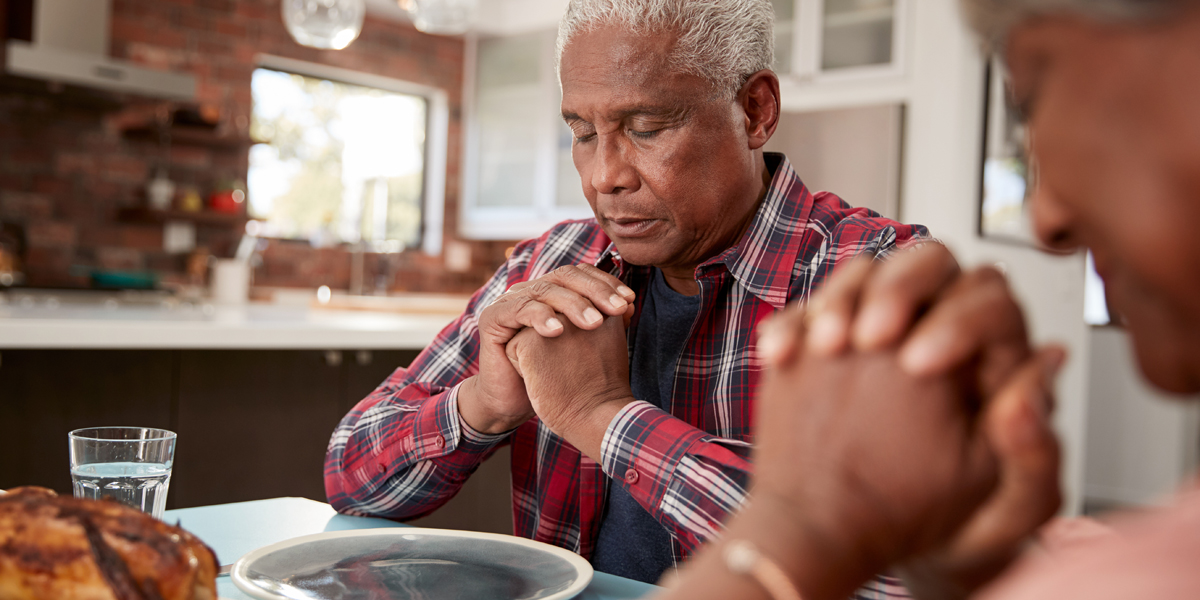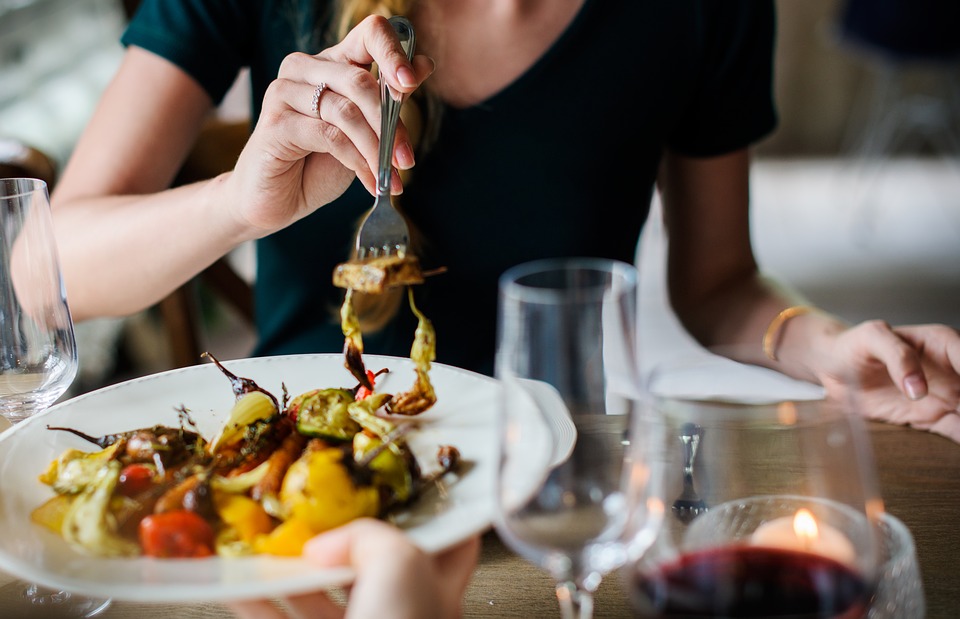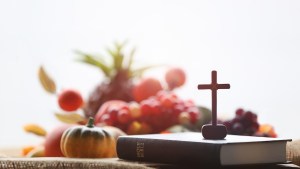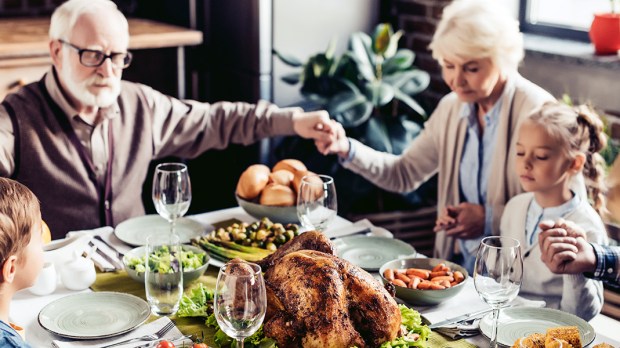A while back, I shared some Chestertonian insights on recovering the glory of Christmas. His unusual approach was well-received by readers, so I thought I’d share his insight about celebrating Thanksgiving, too.
Gratitude was important to G.K. Chesterton. In his autobiography he declares, “The chief idea of my life … [is] taking things with gratitude.” Thanksgiving is an opportunity to shake off the doldrums of life-as-usual and wake up to how blessed we are. Even if it’s been a tough year, the fact we all survived and are here is a victory. Chesterton’s idea is that, if we cultivate gratitude, our eyes will be opened to the wonder we have been passing by unawares.
I suspect if he had his way, every day would be Thanksgiving. For us beginners – and since I don’t think I can eat cranberry sauce that often – maybe we can jump-start our efforts by celebrating this Thanksgiving in a way that would make him proud.
Say grace
Every good meal begins by giving thanks to God. Don’t forget to gather the family and express gratitude before the rush to the turkey. Chesterton would approve, but believes grace before meals is only the warm-up act. He writes, “You say grace before meals. All right. But I say grace before the concert and the opera, and grace before the play and pantomime, and grace before I open a book, and grace before sketching, painting, swimming, fencing, boxing, walking, playing, dancing and grace before I dip the pen in the ink.”
Thanksgiving is a way of life. If we’ve forgotten that, our celebration this week can jump-start us back into better habits.

Eat a turkey
Chesterton really liked turkey. In fact, he vigorously defended the tradition of eating them. Partly what makes a turkey special is that it’s time-consuming to prepare and so large that we rarely prepare them. At our house, we brine the turkey in saltwater overnight, stuff a butter rub under the skin, and smoke it over hickory wood for up to six hours. It’s a process. It’s kind of crazy, standing outside in the snow over a grill, obsessing over my barbecuing technique. All for a bird my children will eat in five minutes. The oddity of the situation, though, is partly why Chesterton loved it so much.
Face reality
Gratitude comes with a price, says Chesterton, “and the price is Truth.” Facing reality is the best way to avoid either the low of despair or the high of presumption. Coming to grips with the truth is the best way to cultivate a sense of hope and savor an experience, because truth places before us exactly what we have and avoids mistaken comparisons about how we deserve better (or worse). Comparisons kill happiness. For instance, if I complain that the stuffing was better last year, or I dwell on the fact that my wife doesn’t make it the way my grandma did, then I fail to appreciate the food right in front of me.

Expect nothing
The insistence that we have a right to something destroys appreciation for it. Consider the flowers in the centerpiece. Chesterton was fond of dandelions but insists that each dandelion is a gift. It would be extraordinary to “demand the pick of all the dandelions in the garden of Paradise.” We didn’t invent dandelions, so each one we encounter is a little miracle.
At Thanksgiving, not only is each part of the feast a miracle, but so is the gathering of family, the card games, the fire in the hearth, and the kids running wild underfoot. We don’t have a right to any of these blessings, which can make us all the more thankful for them.
More is not better
“The aim of life is appreciation,” writes Chesterton, “There is no sense in not appreciating things, and there is no sense in having more of them if you have less appreciation of them.” Maybe we could all dial back a bit on the gluttony? [points finger at self] Even if the food is less than perfect or a family member is missing this year, if we don’t appreciate what is in front of us, no addition will make us happier. “A lonely lamp-post,” writes Chesterton, shines brighter “against the background of the dark.” More isn’t better. Perhaps I should remember this when I’m confronted by a table weighed down with a dozen types of pie.

Shake off familiarity
Chesterton writes, “The most extraordinary thing in the world is an ordinary man and an ordinary woman and their ordinary children.” His amazement extended all the way to marveling over grass being green. Because Thanksgiving happens every year, perhaps we greet its familiar arrival as another event on the calendar.
But here’s the thing, every event on the calendar, each new day, is more special than we realize. Each moment unfolds like a delicate flower. Stop and smell that flower. Take a moment and give thanks, because the food at the meal is actually a feast, the people around you are family, the house is a home, and life is so, so special.


Read more:
How to end each day in a positive spirit of thanksgiving

